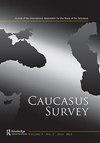格鲁吉亚公务员制度改革的政治制约因素:历史、时事、前景和挑战
IF 0.4
Q3 AREA STUDIES
引用次数: 1
摘要
摘要本研究对格鲁吉亚独立以来的公务员制度改革进行了考察(和评估)。它们分为五个不同的时期。第一个时期包括独立后至1997年通过《公务员法》之前的时间。第二次持续到谢瓦尔德纳泽总统的政府因2003年11月的玫瑰革命而结束。第三个时期——直到2007年——标志着新的联合民族运动(UNM)政府能够利用其获得的压倒性公众支持实施的重要改革。从2007年下半年到2012年,即第四个时期,联M政府的改革步伐明显放缓,甚至在一些领域停滞不前。最后一个时期,即第五个时期,从2012年底开始,一直持续到今天。当时,格鲁吉亚梦想联盟(GD)赢得了议会选举。在第五个也是最后一个时期,政府明显倾向于独立的韦伯里亚公务员制度,而不是联合国运动在其最果断的改革中所倾向的新公共管理原则。改革的成功与否,无论首选何种公务员制度,似乎在很大程度上取决于政治意愿和有利的政治环境。本文章由计算机程序翻译,如有差异,请以英文原文为准。
The political constraints for civil service reform in Georgia: history, current affairs, prospects and challenges
ABSTRACT This study provides an examination (and an evaluation) of the reforms of the civil service of Georgia since its independence. These are divided into five distinct periods. The first one encompasses the time immediately after independence until the adoption of the Law on Civil Service in 1997. The second lasts until the end of the President Shevardnadze’s government as a result of the Rose Revolution in November 2003. The third period – until 2007 – marks important reforms that the new United National Movement (UNM) government was able to implement capitalizing on overwhelming public support it enjoyed. From the second half of 2007 to 2012, the fourth period, the UNM government’s pace of reforms significantly decreased, and even stalled in some areas. The last, fifth period, starts from the end of 2012 and continues to this day. That is when the Georgian Dream Coalition (GD) won the Parliamentary Elections. In the fifth and last period the government showed a clear preference for an independent, Weberian civil service as opposed to New Public Management (NPM) principles preferred by the UNM in their most decisive reforms. Success of reforms irrespective of the type of civil service preferred seems to be highly dependent upon political will and favourable political context.
求助全文
通过发布文献求助,成功后即可免费获取论文全文。
去求助
来源期刊

Caucasus Survey
Arts and Humanities-History
CiteScore
1.30
自引率
9.10%
发文量
4
期刊介绍:
Caucasus Survey is a new peer-reviewed, multidisciplinary and independent journal, concerned with the study of the Caucasus – the independent republics of Armenia, Azerbaijan and Georgia, de facto entities in the area and the North Caucasian republics and regions of the Russian Federation. Also covered are issues relating to the Republic of Kalmykia, Crimea, the Cossacks, Nogays, and Caucasian diasporas. Caucasus Survey aims to advance an area studies tradition in the humanities and social sciences about and from the Caucasus, connecting this tradition with core disciplinary concerns in the fields of history, political science, sociology, anthropology, cultural and religious studies, economics, political geography and demography, security, war and peace studies, and social psychology. Research enhancing understanding of the region’s conflicts and relations between the Russian Federation and the Caucasus, internationally and domestically with regard to the North Caucasus, features high in our concerns.
 求助内容:
求助内容: 应助结果提醒方式:
应助结果提醒方式:


